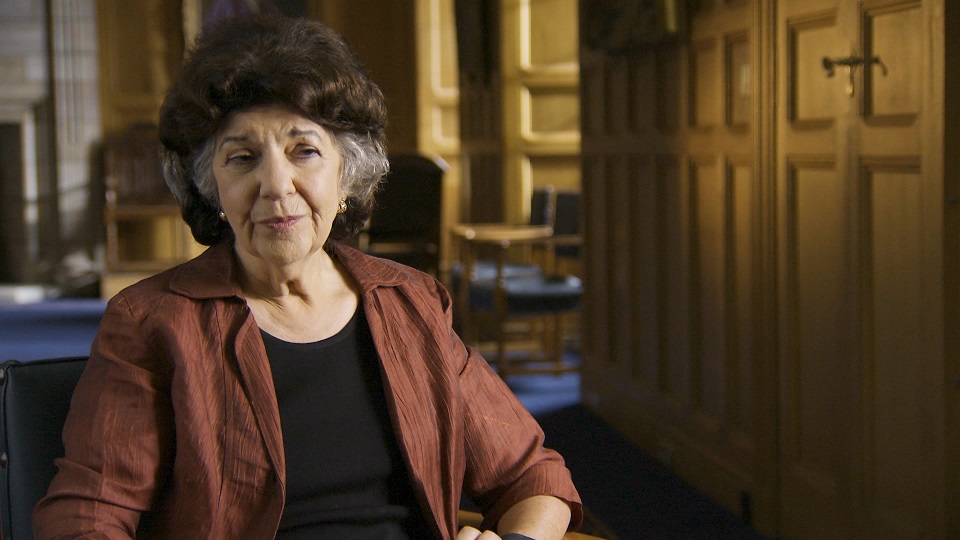SLU Professor Honored With American Philosophy Association Dewey Lecture
Since 1992, Eleonore Stump has taught, studied and written about philosophy at Saint Louis University. Throughout the course of her 30-plus years in the Philosophy Department, she has become known for her dedication to the humanities. This year, as she begins five years of phased retirement, the American Philosophical Association honored her by inviting her to give the Dewey Lecture at its Central Division meeting.
The Dewey lecture series was established in 2006 to honor the memory of American philosopher John Dewey. Each year, there are three lectures, one at each meeting of the APA regional divisions; and each is given by a prominent senior philosopher associated with that division. Each lecturer is asked to “reflect broadly and in an autobiographical spirit on philosophy in America as seen from the perspective of a personal intellectual journey.”
Introducing Stump at the Central Division APA Dewey lecture this year was Robert Pasnau, himself an internationally known and widely honored professor of philosophy. In his introduction, Pasnau noted Stump’s dedication to philosophy and her influence on the subject.
“Anyone who works in the fields that Eleonore addresses must concern themselves with her ideas, because everything she touches is subject to her transformative insights,” Pasnau said. “For me personally, Eleonore’s example has been especially meaningful for the way she has been able to combine a scholarly career in the history of philosophy with an engagement, at the highest level, in contemporary philosophical debates. Eleonore aspires to combine the analytical precision of the philosopher with the sort of understanding that can emerge through literature and interpersonal experience. This, more than anything else, is what marks her books of the last decade as distinctively her own.”
He went on to say:
“What Eleonore has been trying to do, for many years now, is to show how else philosophical understanding might be achieved: through stories, through poetry, through interpersonal connection, and through experiences of both an aesthetic and a spiritual sort,” Pasnau added. “That influences such as this can be treated philosophically at all is something that the modern history of philosophy might well lead one to doubt. That it can be done with the wisdom and grace that Eleonore brings to the task amounts to a genuine event in the history of philosophy.”
In her Dewey lecture, Stump spoke about her own long career at SLU, her love for the Jesuit mission of the university, and the impact of her students she has mentored throughout her long career. She finished her lecture with one final reflection.
“Saint Louis University is a Jesuit school, and it attracts people whose love for something greater than themselves drives them,” Stump said. “I have no idea how to express gratitude adequately for all that I have been given by this community, although I have tried to do so in the prefaces to various books. And something analogous needs to be said about the students. In my years at Saint Louis University, I have had many superb and admirable students; and I couldn’t be more proud of what they have accomplished in their own work or more fond of them as the people they are. I don’t accept the mantra I was raised with: Selbstdisziplin ist alles (self-discipline is everything); and I don’t accept either the notion of intelligence as it is explained by those who construct intelligence tests. But I do believe that love can accomplish great things, and I have been blessed to live and work with many great and loving people who have been part of my local or extended community.”
The full text of her lecture can be found here.


















